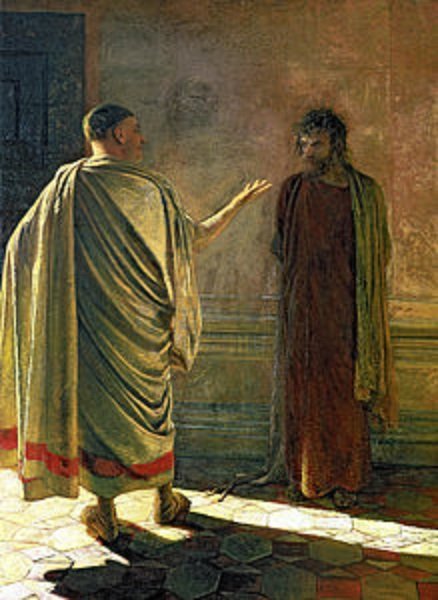The Problem of the Christian Philosophy. The place of philosophy in christianity /part 8 /
But when philosophy pursues its own goals, she is not a slave, she is free, she is wisdom. I well understand that the revelation "teaches" some truths, including philosophical. Only God is not subject to education, the angels train one another, and the trained being does not lose freedom of spirit and talks about how freedom is created. And for every created spirit there is a primacy of truth, even above the experience of knowledge, no matter how noble it may be. Some modern philosophers, not believing in Christian revelation, judge this revelation from the position of prejudice that matters only in the non-Christian system.
Such a method of good should not be recognized. If we do not believe that the very First Truth itself enlightens us with the formulas of faith, if we believe that our faith teaches the simple rule of the uplifting of the human tradition, of course we will not accept the obedience of the philosophy of faith. I mean, in the end, no one will agree that philosophy is worried. nor a non-Christian in the eyes of whom faith can restrain philosophy and prevent it from seeing it. nor a Christian, in the eyes of whom faith can not narrow the philosophy as it strengthens it and helps it to see it better.Moreover, the more or less serious inconvenience of the vital solidarity in the Christian regime between the hierarchical virtues and the virtues of the intellect may arise from case to case, as in any organic system. so in the Middle Ages philosophical problems brought about by theology often became dependent exclusively on theology.
the tomist philosophy has suffered a certain loss, not in terms of its internal merits, but in terms of its organizational autonomy. One reason for the misunderstandings that separates scholastics and contemporary thinkers today is that we find that the amazing plurality of the first, the purity, the depth of their philosophy, their inclusion in the outside world have delayed its technical development the path of self-teaching, leading one's own life outside of theology, and practicing in all its parts in accordance with its own methods and practices, which are inherent in philosophy. Let's say that a completely different from the Theology philosophical philosophy, which inhabits and is always obliged to live both in its own bosom and in the bosom of theology, there is much work to be done on the arrangement and redistribution of the material to be accomplished to displace - not to break the vital connection to it with theology. But we think that the inconveniences that come from the recognized regime of obedience are less serious than those caused by subordination to the philosophy of theology and the unclear mysticism.
In any case, not only Plato, but also many other medieval theologians and philosophers, the modern West is obliged to the very concepts of completeness of the objective science of all that this concept has taken from the ascetic mind. This clever cleansing is one of the achievements of Christian philosophy. Finally, we have already noted that the difference is not separation. Although there are significant differences between philosophy and theology, nothing interferes with the fact that the thought in the disposition of these two disciplines only makes the only concrete movement towards each other. Which is separated from schools is united by life. Free Christian wisdom, uniting, philosophical and theological enlightenment, can thus function in accordance with the thought movement that reminds if you wish the thought movement at Malbranch but without mixing it with formal objects .
